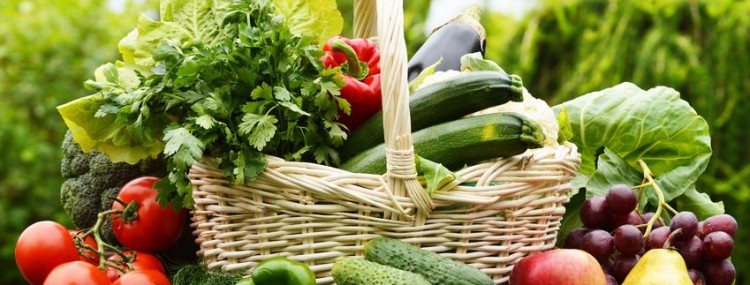
The Not So Convenient Facts About Processed Foods
 People who eat healthy, mostly unprocessed foods, including fruit, vegetables, whole grains, legumes (lentils, dry beans and peas), reduced-fat dairy, and limited amounts of lean animal protein (fish, chicken, and lean cuts of other meats), often find that they can eat as much as they want without gaining weight. If they are switching from a diet containing lots of processed foods, they find that they can eat more yet consume fewer calories – and lose weight.
People who eat healthy, mostly unprocessed foods, including fruit, vegetables, whole grains, legumes (lentils, dry beans and peas), reduced-fat dairy, and limited amounts of lean animal protein (fish, chicken, and lean cuts of other meats), often find that they can eat as much as they want without gaining weight. If they are switching from a diet containing lots of processed foods, they find that they can eat more yet consume fewer calories – and lose weight.
Because natural fruits, vegetables and whole grains are high in complex carbohydrates and fibre, they are absorbed slowly and satisfy our feelings of hunger. Heavily processed foods, on the other hand, are not only low in nutritional value, but they don’t make us feel satisfied so we eat more of them.
So what ails the processed “convenience” foods? A lot !They are made from refined ingredients including maida that is bleached with “alloxan” that is known to cause diabetes and other health problems. Refined substances have no taste of their own, and so require large amounts of salt, sugar, fat, and high-priced advertising to make them attractive. All of these can be toxic in high amounts for our kidneys and heart.
Take apple juice as an example. A medium size apple contains just 72 calories and over 3 grams of fibre, while 200 ml of apple juice contains 120 calories and no fibre at all. And we’re just talking about pure, “healthy” apple juice.
Here are some other toxins in processed foods that should set you thinking!
BHA (Butylated Hydroxyanisole)
These compounds are usually added to fats and cooking oils (and many others including baked foods, snacks, etc.) as “antioxidants” and their main role is prevent oils from becoming rancid. Fats and oils get oxidized when exposed to air for a long time, and this process results in their getting spoilt. BHA is an antioxidant, which prevents the spoilage. But many studies have found that BHA increases activity of cancer cells in liver and other organs. The International Agency for Research on Cancer has declared BHA as a carcinogen.
Sodium Aluminum Sulphate
Listed under ingredients as soda alum or sodium alum, or simply as acidity regulator (E521 ) this chemical is basically used to make baking powder and is used in anything that is baked . Processed cheese products, microwave popcorn, also contain this. Sodium aluminium sulphate is linked to adverse reproductive, neurological, behavioural, and developmental effects.
The US FDA (Food and Drug Administration) states that aluminium salts in excessive amounts, have adverse effects on bone health, can cause kidney damage, and interfere with glucose metabolism.
What can you do?
Read labels carefully for these ingredients. BHA is usually listed as “antioxidant” and sodium sulphate as “acidity regulator” . Try and buy products without BHA. Cold pressed oils are available , although not extensively, but many online sites sell them. It is good to make butter and ghee from fresh milk at home as much as possible. Most packaged cookies, biscuits and other baked goods have acidity regulators. Bake fresh cookies at home or request your friendly neighbourhood baker to make some for you with fresh ingredients.
When it comes to health, there can be no compromises. Eating natural and healthy is always the health mantra. Calorie Care provides just that and more. At just one click , you can gorge on calorie controlled, fresh meals that are devoid of harmful additives and colours! Visit caloriecare.com for all things nutritious!



